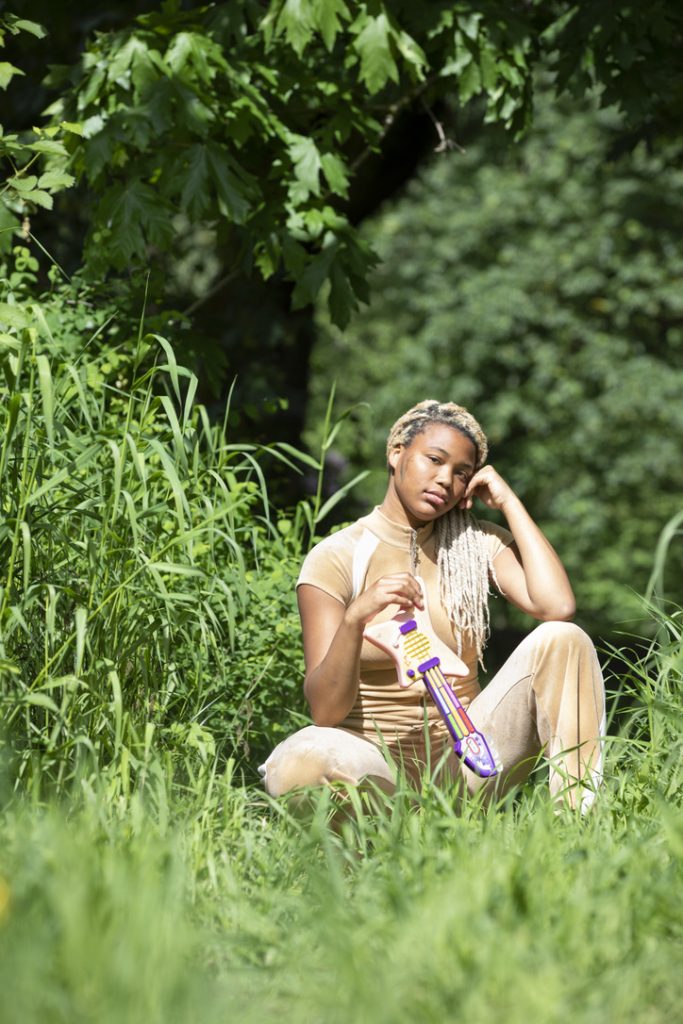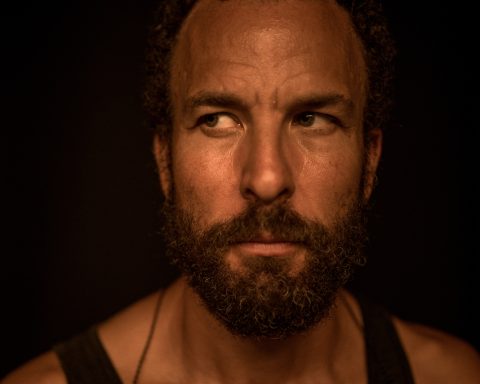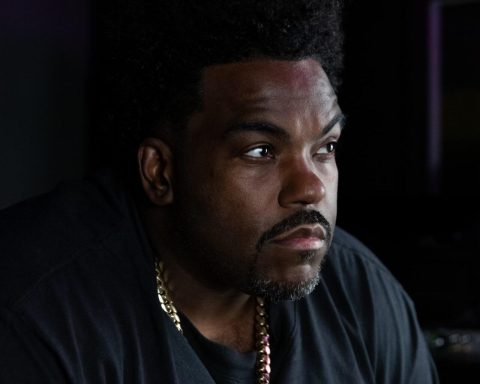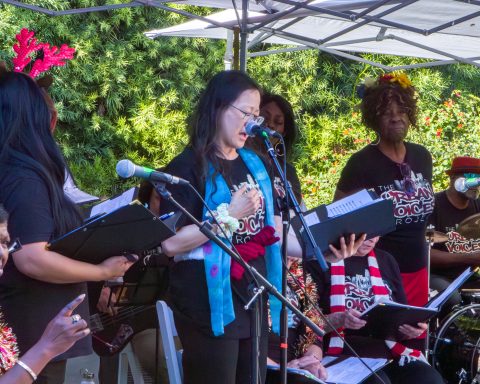With each day, prolific rapper, DoNormaal (born Christianne Karefa-Johnson), distances herself from the fantasy. It’s easy to get lured, of course—to want the big record contract, the money, glamour, fame, and fortune. The music industry dangles tantalizing goals before artists like gold at the end of the rainbow.
Owning the Process
It’s difficult to detach from expected ambitions. They can creep into young people’s psyche and distort their originality. It is the job of artists to chip away at those false assumptions. For DoNormaal, who is almost finished with her new LP, Yippee, taking ownership of her process remains in sharp focus.
“I think a lot about when I was 18,” says the 28-year-old DoNormaal. “If you asked me, ‘Do you want to get signed by a big record label and be super famous?’ I would have said, ‘Hell yeah!’ Then I think about all the struggles I had between then and now that could have absolutely ruined me. I was so not ready for that. Not many 18-year-olds are.”
A Rapper’s Rise
DoNormaal rose to local fame in Seattle with her effortless-yet-determined rapping style and evocative, eye-catching live performances—golden braids twirling, cushy moon boots moving. She’s performed at major festivals in and around the Emerald City, including Sasquatch and Capitol Hill Block Party. Reputable record labels, that will remain nameless, approached her in the wake of her acclaimed 2017 album, Third Daughter.
However, at the peak of her Northwest fame, DoNormaal left town.
In November of 2019, she moved to Palm Springs to spend time with her mother. A handful of months later, COVID-19 hit. As a result, she self-quarantined in the Sunshine State’s desert region. DoNormaal planned to head to Los Angeles. The idea was to make her way as she did in Seattle six years prior: play gigs and meet people. Let her artistry and charm guide her. Instead, the seven-month detour provided time for introspection.
"I didn’t have time to think about what I was doing or the impact I was having. Leaving that and coming to live with my mom in the desert where I don’t know anyone was a complete-180."
Letting Seattle Go
“I’ve been trying to unpack my time in Seattle,” DoNormaal says. “Since I was going, going, going, I didn’t have time to think about what I was doing or the impact I was having. Leaving that and coming to live with my mom in the desert where I don’t know anyone was a complete-180.”
Despite profiles in The Seattle Times, Vice, and other major publications, DoNormaal insists she’s only now stepping into adulthood. Previously, she let the current float her in new and unpredictable directions. While DoNormaal benefited from these diversions, she now wants to be more intentional about planning for the future.
The impact on her music will be evident when the forthcoming LP hits stores and streaming platforms. One significant change, however, is that the musician produced some of the beats on the upcoming release herself.

Cool Out and Create
“It’s really fun,” she says. “I enjoy it. For some of the beats, I used samples. I’ve been watching a lot of documentaries on TV. In one, someone was playing a music box, so I took a sample of that audio and built a beat off it. Production is something I’ve always wanted to do but the technical aspects tripped me up. Now, I have so much time, though, it’s easy to do it.”
Overcoming challenges is at the root of DoNormaal’s career. The artist (whose name stems from a Dutch expression she learned studying in Amsterdam meaning, essentially, “cool out”) always loved music. As a child growing up, it was always around.
Like many young people in America in the ‘90s, DoNormaal’s childhood provided a steady diet of hip-hop and hip-hop culture. Her older siblings played music and brought bits of popular culture home which she absorbed. The music, and some much-needed encouragement from friends in college, pushed DoNormaal to indulge her developing skills.
"The beat has so much language in it already. It’s less the case of coming up with something and more the case of listening to what the beat is asking for."
Fantasy Vs. Reality
“The first video I did was for, ‘Let That Thing,’” she says. “In that video, I had more of a fantasy of who I wanted to be as a rapper. I was more connected to that fantasy than I am now. In that moment, I was thinking how I wanted to become a rapper. Now I just am.”
As a rapper, DoNormaal’s finest skill might be her generous ear. When writing, she listens to the beat, rather than imposing on it.
“The beat heavily impacts my writing,” DoNormaal says. “But the beat has so much language in it already. So, it’s less the case of coming up with something and more the case of listening to what the beat is asking for.”
Sonic Exploration
Her approach is akin to an explorer in the woods stopping to note the breeze, the sound of the brook at their feet, whether the rustle of the animals in the brush offers caution or welcome.
This applies to DoNormaal’s entire life, encompassing both social changes and personal ones. A group of people is not one thing; neither is one person. DoNormaal is not simply Christy or vice versa. It took leaving home, pausing her career, and watching the world through the lens of a pandemic to inspire a renewed sense of purpose.
“I struggled at first,” DoNormaal admits. “I felt isolated, not being near marches. Engaging with the online discussion wasn’t an outlet that suited me like it did years ago. I had to ask myself where I belonged. After thinking about it, I was okay with the fact that my music and the way I’ve moved through my career has been a protest, in and of itself.”
In that spirit, the artist leaves us with these thoughts:
“And I continue to reflect a lot on how I can, given my particular strengths, be most efficient as a change agent and figuring out where I’m most needed in the movements of our time and get there. I encourage everyone to donate to https://www.glitsinc.org/ and help care for, uplift, and protect the Trans BIPOC community, as they have consistently proven to be the leaders of social change in this country and are the voices we all need to be listening to.”







